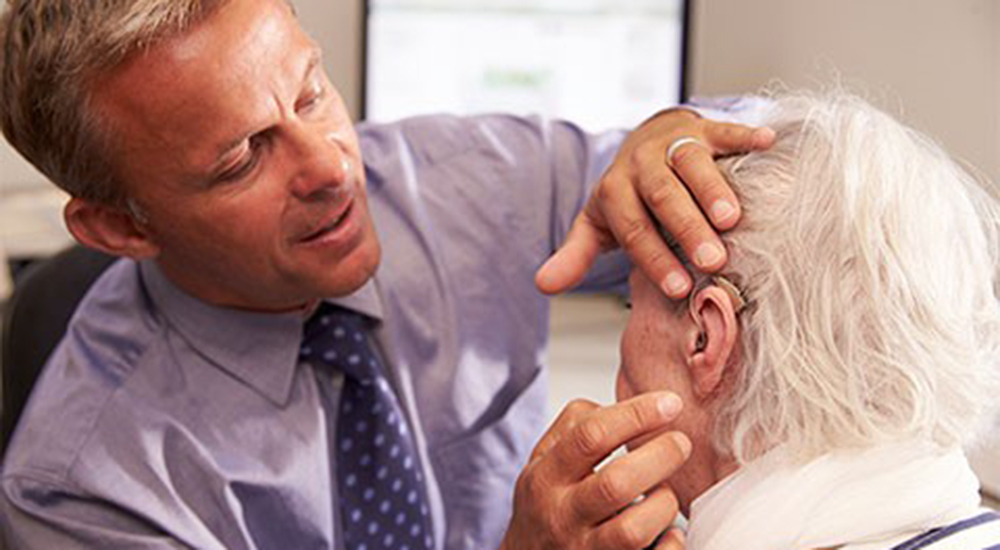Communication is the most important skill that lets us interact and share information with each other. Good hearing and speech play important roles in experiencing life for Veterans and service members. It connects them with the people and world around them.
VA employs over 1,370 audiologists, 410 audiology health technicians and 450 speech-language pathologists This makes VA the largest employer of audiologists and speech-language pathologists in the United States.
Audiologists provide services at over 490 VA sites of care. Speech-language pathologists provide services at over 190 VA sites, as well as for home care. Audiology and speech pathology services are provided using telehealth technology.
With the support of the Office of Academic Affiliations, VA has provided training for 176 graduate trainees. In the past year, more than one million Veterans have benefited from interventions provided by audiologists and speech-language pathologists.
Military service is hard on the ears. Within the Veteran population, tinnitus (ringing in the ears) and sensorineural hearing loss account for the two most prevalent service-connected disabilities.
Services provided
VA’s audiologists provide:
- Screening and prevention services
- Evaluation and treatment of hearing loss and balance disorders
- Tinnitus education and management
- Auditory rehabilitation services to optimize residual hearing.
Audiologists are specialists in providing hearing aids and other assistive listening devices. Also, post-surgical rehabilitation for cochlear and other bioelectric auditory implants.
Speech-Language Pathologists provide:
- Evaluation, treatment, and prevention services for:
- Speech
- Language
- Cognitive-communication
- Voice disorders.
Communication includes:
- Understanding auditory information
- Verbal expression
- Reading comprehension
- Writing
- Non-verbal communication such as:
- Gestures
- Facial expressions
- Sign-language.
In some cases, Veterans benefit from assistive technology, such as computerized speaking devices, cognitive aids or a voice prosthesis.
Over the past 25 years, VA speech-language pathologists have been the leaders in rehabilitation for patients with dysphagia or difficulty swallowing.
For more information, go to audiology or speech language pathology.
May is Better Hearing and Speech Month.
Nan Musson, M.A., is the speech pathology discipline lead for Rehabilitation and Prosthetics Services.
Topics in this story
More Stories
Watch the Under Secretary for Health and a panel of experts discuss VA Health Connect tele-emergency care.
The 2024 National Veteran Suicide Prevention Annual Report provides the foundation for VA’s suicide prevention programs and initiatives.
Theranostics is a specialized field of nuclear medicine that uses a two-pronged approach to diagnose and treat cancer.







